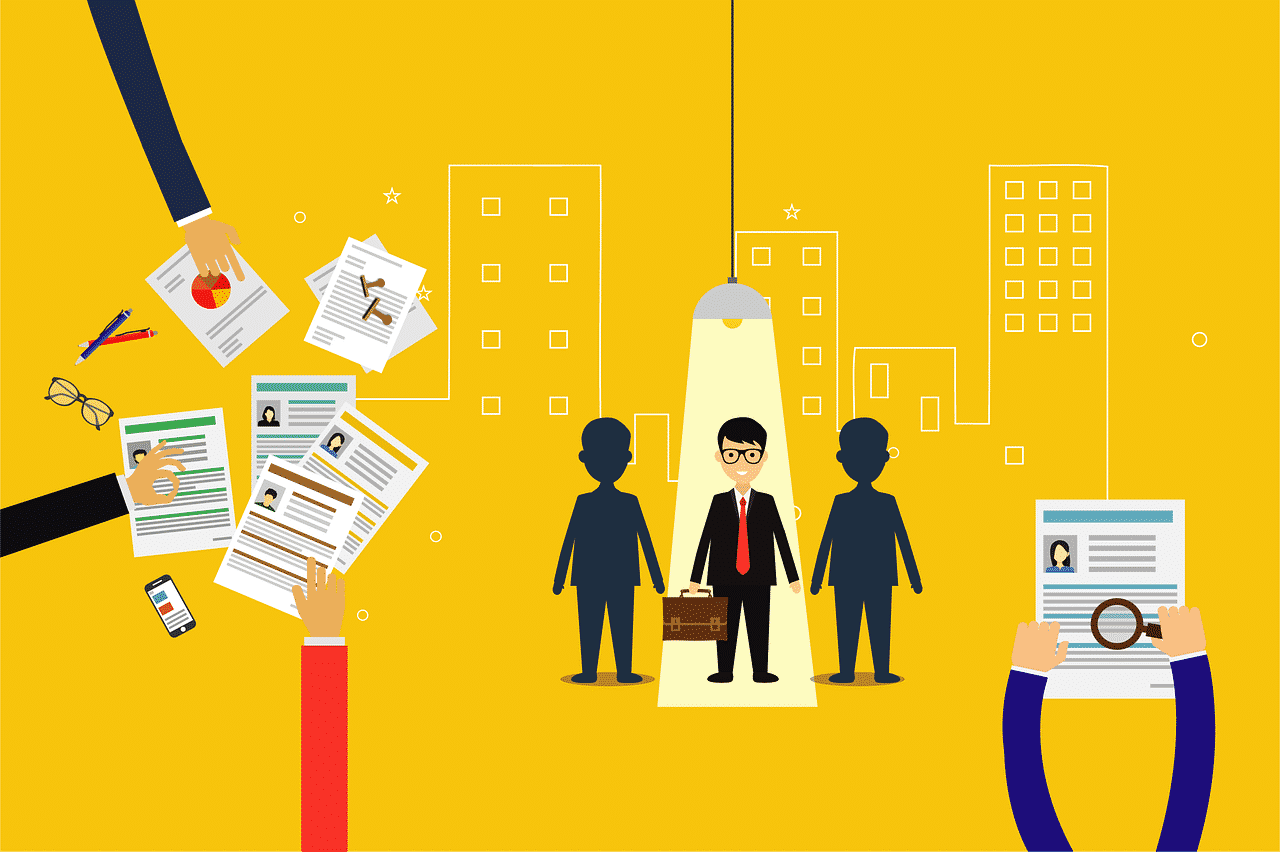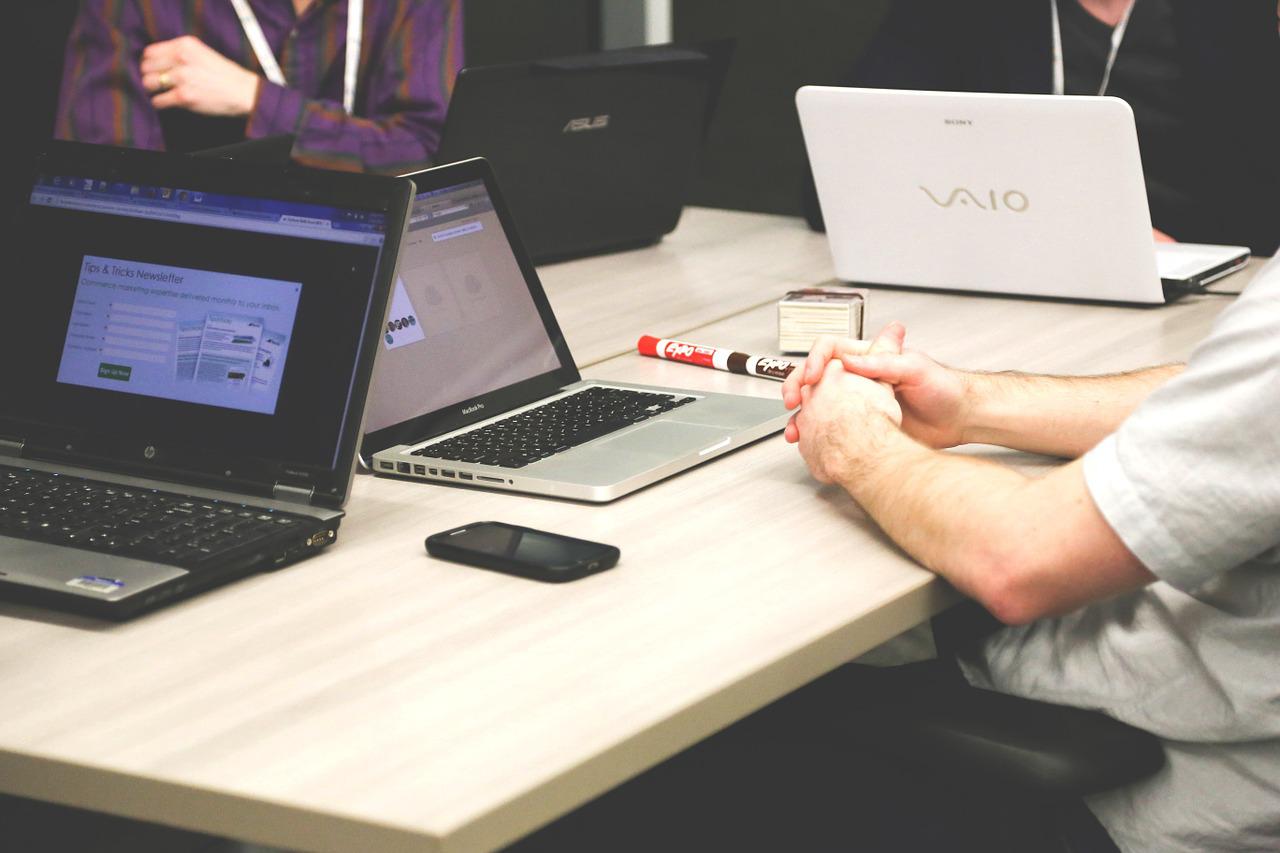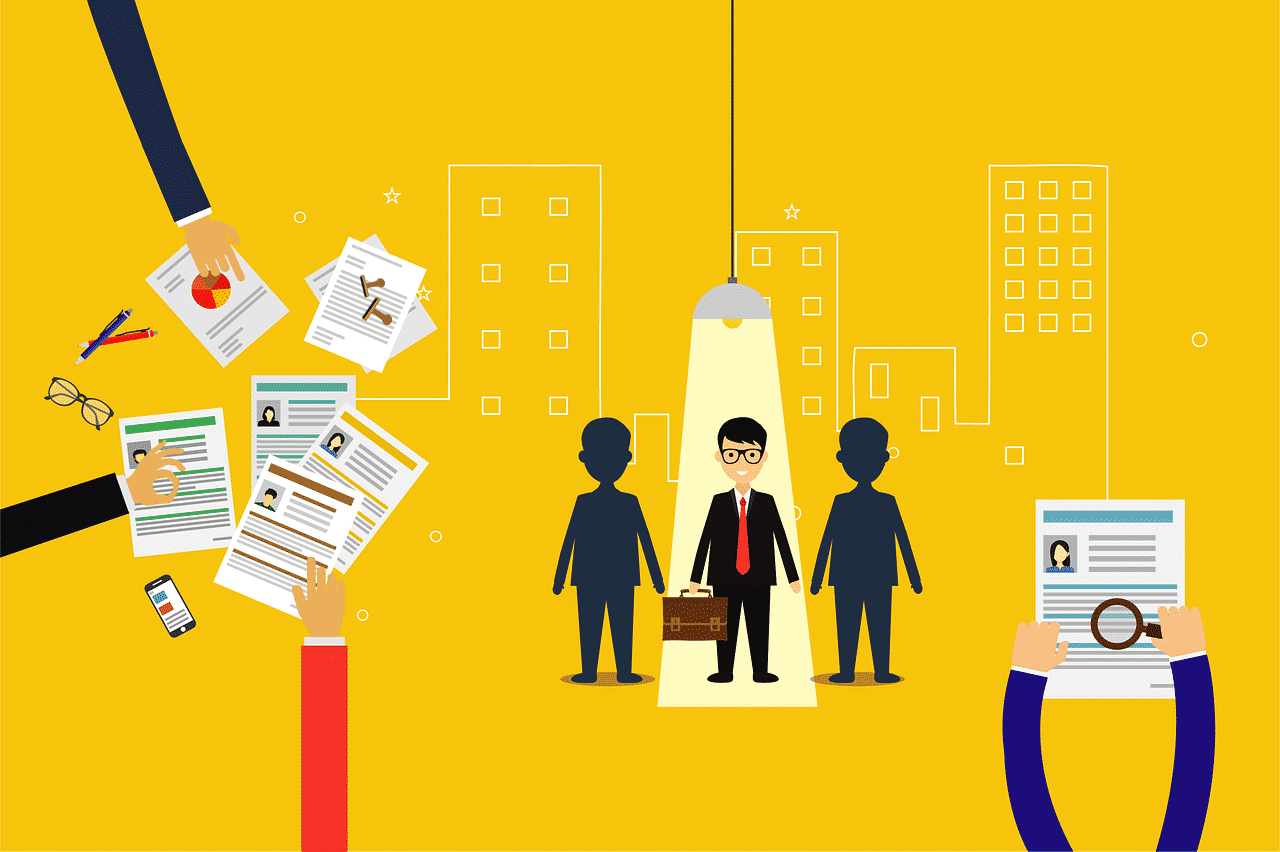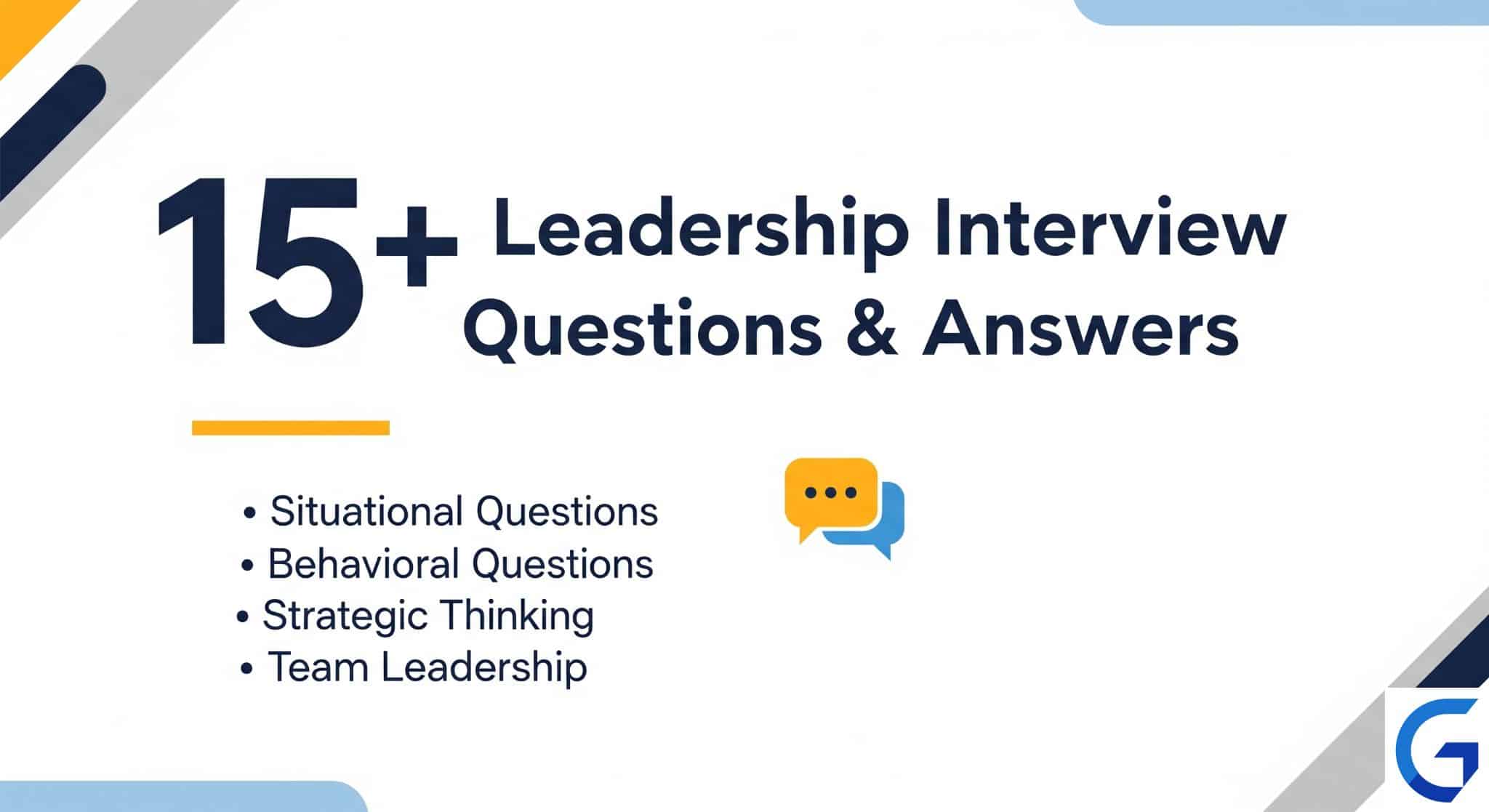Interviews are a crucial step in landing your dream job, but did you know there are different types of interviews, each requiring a unique approach?
From traditional one-on-one interviews to modern virtual or panel formats, understanding these variations can help you better prepare and make a lasting impression.
This blog will explore the most common types of interviews, what to expect from each, and actionable tips to help you shine, no matter the format.
Whether you're a fresher or an experienced professional, this guide will ensure you confidently walk into your following interview.
What is an Interview?
An interview is a systematic process where an interviewer and a candidate engage in a discussion to assess the candidate’s qualifications, skills, and suitability for a specific job or role.
Interviews serve as an essential tool for employers to evaluate potential employees while allowing candidates to learn more about the company and the position.
Interviews can take various forms and are conducted through different modes, depending on the nature of the job and the employer's requirements.
Types of Interviews: An In-Depth Guide with Examples and Preparation Tips
Interviews are vital to the recruitment process, each designed to assess a candidate's qualifications, skills, and suitability for a specific role.
The type of interview you face will depend on the position, the industry, and the employer's preferences.
Below, we detail the various types of interviews, providing practical tips on how to prepare effectively and examples to guide you through each format.
1. Structured Interview
In a structured interview, the interviewer follows a standardized format with a predetermined set of questions. This ensures uniformity and fairness across all candidates. Structured interviews are commonly used for roles where specific skills and qualifications are essential.
Format:
- Questions are designed in advance based on the job requirements.
- The same questions are asked to all candidates in the same order.
- Focuses on specific competencies, skills, and experiences.
Example Question:
"Can you describe a situation where you successfully led a project within a tight deadline?"
Preparation Tips:
- Research the job description and identify key skills and qualifications.
- Use the STAR method (Situation, Task, Action, Result) to structure your responses.
- Practice answering behavioral and competency-based questions.
Read: Leadership Interview Questions and Answers to gain insights into the questions you may face in leadership roles.
2. Unstructured Interview
An unstructured interview is more conversational and informal, allowing the discussion to flow naturally. The interviewer may ask open-ended questions, exploring the candidate's background, personality, and thought process.
Format:
- No predetermined questions or format.
- The interviewer adapts questions based on the conversation.
- Focuses on the candidate’s overall suitability for the role.
Example Question:
"Tell me about your journey so far and what inspired you to apply for this position."
Preparation Tips:
- Be ready to discuss your resume in detail and explain your career choices.
- Have clear, concise stories about your achievements and experiences.
- Practice active listening to respond appropriately to follow-up questions.
3. Situational Interview
Situational interviews assess how candidates might handle specific, job-related scenarios. This type of interview focuses on problem-solving, decision-making, and adaptability.
Format:
- Hypothetical situations are presented to the candidate.
- The candidate is asked to describe how they would respond to or resolve the scenario.
- Often used for roles that require quick thinking and practical solutions.
Example Question:
"How would you handle a team member who is consistently missing deadlines and affecting the project timeline?"
Preparation Tips:
- Anticipate scenarios related to the job and prepare potential responses.
- Use examples from your past experiences to back up your approach.
- Demonstrate critical thinking and emphasize positive outcomes.
4. Panel Interview
A panel interview involves multiple interviewers assessing a candidate simultaneously. Each panelist may focus on different aspects of the candidate's qualifications, such as technical skills, cultural fit, or leadership abilities.
Format:
- Typically includes 2-5 interviewers.
- Each interviewer asks questions from their area of expertise.
- May include follow-up or situational questions.
Example Question:
"How do you manage conflicts within a team while ensuring productivity?"
Preparation Tips:
- Maintain eye contact with all panel members, not just the person asking the question.
- Be prepared to answer questions from different perspectives (technical, managerial, etc.).
- Address the entire panel while tailoring responses to individual questions.
5. Group Interview
In a group interview, multiple candidates are evaluated together. This format helps assess teamwork, communication skills, and leadership qualities.
Format:
- Candidates may participate in group discussions, activities, or problem-solving tasks.
- The focus is on interaction, collaboration, and individual contributions.
Example Activity:
A group is tasked with developing a marketing plan for a hypothetical product launch.
Preparation Tips:
- Be an active and respectful participant.
- Showcase your ability to collaborate while contributing unique insights.
- Avoid dominating the discussion or interrupting others.
6. Case Study Interview
This type of interview assesses a candidate’s analytical and problem-solving skills through real-world or hypothetical business problems.
Format:
- Candidates are presented with a detailed case or scenario.
- Expected to analyze the problem, propose solutions, and justify their recommendations.
Example Question:
"Your company is facing declining sales in its flagship product. How would you identify the root cause and propose solutions?"
Preparation Tips:
- Practice case studies related to your field (consulting, finance, marketing, etc.).
- Structure your analysis logically and clearly.
- Focus on data-driven solutions and actionable insights.
7. Technical Interview
A technical interview evaluates the candidate’s technical expertise and problem-solving abilities in a specific domain, such as programming, engineering, or data analysis.
Format:
- Includes coding challenges, problem-solving exercises, or technical questions.
- May involve whiteboard sessions or live demonstrations.
Example Question:
"Write a function to find the second largest element in an array."
Preparation Tips:
- Review core technical concepts and tools related to your domain.
- Practice coding problems on platforms like LeetCode, HackerRank, or CodeSignal.
- Be prepared to explain your thought process and approach.
8. Stress Interview
Stress interviews test how candidates handle pressure, difficult questions, or challenging scenarios.
Format:
- May include rapid-fire questioning, interruptions, or intentionally uncomfortable situations.
- Designed to evaluate the candidate’s resilience and composure.
Example Question:
"Why do you think you deserve this role over candidates with better qualifications?"
Preparation Tips:
- Stay calm and composed, even in high-pressure situations.
- Focus on logical responses and avoid becoming defensive.
- Treat the experience as an opportunity to demonstrate confidence and poise.
Modes of Interview
1. Face-to-Face Interviews
A traditional and widely used mode, face-to-face interviews allow for direct interaction between the interviewer and candidate. This format helps assess body language, communication skills, and overall personality.
Advantages:
- Build a personal connection.
- Enables a comprehensive evaluation of verbal and non-verbal cues.
Preparation Tips:
- Research the company and role thoroughly.
- Dress professionally, adhering to the company’s culture.
- Arrive on time and bring multiple copies of your resume.
- Practice good body language, such as maintaining eye contact and sitting upright.
2. Telephonic Interviews
Telephonic interviews are often used for initial screenings to shortlist candidates for further rounds. They assess basic qualifications, communication skills, and interest in the role.
Advantages:
- Convenient and quick for both parties.
- Eliminates travel requirements.
Preparation Tips:
- Choose a quiet location with minimal background noise.
- Keep a copy of your resume and job description in front of you.
- Speak clearly and avoid rushing your answers.
- Use a polite tone and confirm the interviewer’s questions if needed.
3. Video or Virtual Interviews
Video interviews are conducted using platforms like Zoom, Microsoft Teams, or Google Meet. They combine the benefits of face-to-face interaction with the convenience of remote access, making them highly popular, especially for remote or hybrid roles.
Advantages:
- Allows real-time interaction without travel.
- Enables interviewers to assess visual cues like expressions and presentation.
Preparation Tips:
- Test your internet connection and ensure your device is fully charged.
- Check your camera, microphone, and background for professionalism.
- Maintain eye contact by looking into the camera, not at the screen.
- Dress professionally as you would for an in-person interview.
4. Text-Based Interviews
These interviews are conducted through chat platforms, email, or messaging apps. They are often used for roles requiring strong written communication or for preliminary screenings.
Advantages:
- Provides time to think before responding.
- Eliminates the need for verbal communication skills.
Preparation Tips:
- Use professional language and avoid abbreviations or slang.
- Proofread your responses before sending to ensure clarity and accuracy.
- Respond promptly and stay engaged throughout the conversation.
5. Recorded Video Interviews
In this mode, candidates respond to pre-set questions through a video recording. The recordings are later reviewed by the interviewers to assess responses.
Advantages:
- Offers flexibility for candidates to record responses at their convenience.
- Allows interviewers to evaluate multiple candidates efficiently.
Preparation Tips:
- Record in a quiet, well-lit space with a professional background.
- Practice concise and structured answers before starting the recording.
- Follow the time limits provided and speak clearly.
General Tips for Interview Preparation
Preparing for an interview requires more than just reviewing the job description and applying your technical skills. To truly stand out, you need to ensure that you are thoroughly prepared on multiple fronts.
Here are some comprehensive tips to help you navigate the interview process with confidence:
1. Understand the Company Inside and Out:
Before stepping into any interview, conducting in-depth research about the company is crucial. This shows your genuine interest and dedication to the role.
- Company History: Learn about the company's founding, mission, and significant milestones. Knowing the company's story gives you a foundation to align your answers with its values.
- Example: If the company started as a small startup focusing on innovation, you could tailor your response to highlight your passion for contributing to a fast-growing and dynamic environment.
- Company Culture: Read employee reviews, explore their website, and browse their social media profiles to understand the workplace culture. Is it collaborative or competitive? Formal or informal?
- Example: If the company emphasizes teamwork and collaboration, you can demonstrate your ability to work well in group settings by sharing relevant examples.
- Recent News and Achievements: Stay updated on the latest developments within the company. Are they launching new products, expanding into new markets, or receiving awards? Mentioning recent news in your interview shows that you're proactive and well-informed.
- Example: If the company just announced a new initiative or product, you can express enthusiasm and explain how your skills can contribute to that initiative.
2 Resume Mastery
Your resume is your marketing document, so be fully prepared to discuss every aspect. Whether it's your education, previous work experience, or skills, you should be able to speak confidently about everything listed.
- Be Ready to Explain Every Detail: Expect questions like, "Tell me about your role in XYZ project" or "Why did you leave your previous job?" Be prepared to offer detailed insights.
- Example: If your resume mentions a gap in employment, have a clear, honest explanation. Whether for personal growth, further studies, or other reasons, frame it positively.
- Link Your Skills to the Job Description: Be prepared to highlight specific achievements on your resume that align with the skills required for the position.
- Example: If the role emphasizes leadership, you can refer to instances where you successfully managed a team or led a project.
3 Mock Interviews
Mock interviews are a powerful tool for improving your interview performance. Practising with a friend, mentor, or coach can help you get comfortable with the format, refine your answers, and reduce interview anxiety.
- Practice Common Questions: Prepare for typical interview questions such as "Tell me about yourself" or "Why do you want to work here?" and practice responding fluently.
- Example: A mock interview with a friend can simulate a real interview environment where you can practice delivering your answers confidently and naturally.
- Industry-Specific Scenarios: If your industry involves technical or role-specific questions, simulate those as well.
- Example: For a data science interview, practice explaining technical concepts like machine learning algorithms or data analysis processes. Practice answering questions about campaign strategies or consumer behaviour in a marketing interview.
- Get Feedback: After the mock interview, ask for feedback on your answers, body language, and overall presentation. This will help you identify areas for improvement.
4 Soft Skills
While technical proficiency is necessary, soft skills are just as critical in making a lasting impression during an interview. Your ability to communicate effectively, demonstrate empathy, and engage with the Interviewer will set you apart from other candidates.
- Effective Communication: Be clear, concise, and articulate when answering questions. Avoid rambling, and take a moment to think before responding if needed.
- Example: In a behavioural interview, using the STAR method helps you answer questions in a structured and precise manner, making communication more effective.
- Active Listening: Listen carefully to the Interviewer's questions, and make sure you understand them before responding. This shows respect and ensures you provide relevant answers.
- Example: If the Interviewer asks a multi-part question, pause to ensure you address each part separately.
- Body Language: Your non-verbal cues are just as important as your words. Maintain eye contact, smile, and use open body language to convey confidence and enthusiasm.
- Example: When answering a question, sit up straight, lean slightly forward to show engagement, and avoid fidgeting with your hands or feet.
- Emotional Intelligence: Show you can manage your emotions, stay composed, and handle stress. This is especially important during stressful interview scenarios like stress interviews.
- Example: If the Interviewer asks challenging questions, take a deep breath, and respond thoughtfully rather than reacting impulsively.
5 Dress Appropriately
Your appearance plays a crucial role in making a positive first impression. While every company has its own dress code, dressing appropriately is essential to interview preparation.
- Business Casual or Formal: Business casual attire is appropriate for most corporate roles unless otherwise specified. If you're unsure, it's better to slightly overdress than slightly underdress.
- Clean and Tidy Appearance: Ensure your clothes are well-fitted, clean, and pressed. Pay attention to grooming and ensure your hair is neat, your nails are trimmed, and you avoid excessive jewellery or strong perfumes.
- Example: If you're interviewing for a customer-facing role, ensure that your attire conveys professionalism and readiness to represent the company well.
Focusing on these fundamental aspects will help you build a strong foundation, help you present your best self during the interview, and increase the likelihood of securing your desired job.
Enroll in Great Learning's Free Interview Preparation Courses and prepare with industry experts.
Post-Interview Tips
1. Send a Thank-You Email to the Interviewer
- Show Gratitude and Reaffirm Interest: A thank-you email is a meaningful gesture that shows appreciation for the Interviewer's time and reiterates your interest in the role. This simple yet effective action can leave a lasting positive impression.
- Timing: Send the thank-you email within 24 hours of the interview to ensure your message arrives promptly while the conversation is still fresh in the Interviewer's mind.
- Personalization: Tailor the email to reflect specific moments from the interview that stood out. This demonstrates attentiveness and that you value the discussion.
- Example of a Thank-You Email:
Subject: Thank You for the Opportunity
Dear [Interviewer's Name],
Thank you for taking the time to meet with me today regarding the [Job Title] position. I truly enjoyed learning more about the team and the exciting work at [Company Name].
Our discussion about [specific topic discussed during the interview] resonated with me, and I am confident that my [relevant skills or experience] would allow me to contribute to the team's continued success.
I am enthusiastic about the opportunity to work at [Company Name] and excited about possibly joining your team. Please do not hesitate to reach out if you need any further information.
Thank you once again for the opportunity. I look forward to hearing from you soon.
Best regards,
[Your Name]
2. Reflect on Your Performance for Future Improvement
- Self-Assessment for Growth: Reflection after the interview is essential to the learning process. Whether you receive an offer or not, reviewing your performance will help you grow and improve in future interviews.
- Review Questions and Answers: Consider how well you answered the interview questions. Were there any questions you struggled with or felt unprepared for? Think about what you could have said differently or how to improve your response next time.
- Learn from Mistakes: If you think there were any areas where you faltered, such as nervousness or not answering a question as clearly as you'd like, use that as an opportunity to improve. Practice answering tough questions or role-playing scenarios that make you uneasy.
3. Follow Up If There's No Response Within the Agreed Timeline
- Demonstrate Professionalism and Patience: It's essential to be patient after the interview, but following up can show that you're still interested and proactive, especially if the Interviewer has given a timeline for feedback and that date has passed.
- Timing: If the agreed-upon timeline has passed by a few days (typically 1-2 weeks), sending a polite follow-up email is perfectly acceptable. However, avoid coming across as impatient or pushy.
- Example of a Follow-Up Email:
Subject: Following Up on [Job Title] Interview
Dear [Interviewer's Name],
I hope this message finds you well. I wanted to follow up regarding the [Job Title] position I interviewed for on [Interview Date]. I am still very excited about the opportunity to join [Company Name] and contribute to the team.
I understand you may be in the process of making a decision, and I wanted to check in to see if there have been any updates regarding the timeline or next steps.
Thank you again for the opportunity, and I look forward to hearing from you soon.
Best regards,
[Your Name]
By sending a thank-you email, reflecting on your performance, and following up professionally, you show your dedication to the role and strengthen your chances for future opportunities.
These post-interview actions demonstrate your professionalism, patience, and proactive attitude, which can set you apart in a competitive job market.
Conclusion
Interviews are an essential part of the job search process, and understanding the various types and preparing effectively for them can significantly increase your chances of success.
Whether it's a traditional face-to-face interview, a challenging technical round, or a high-pressure stress interview, being well-prepared is key to presenting yourself as the best candidate.
Additionally, reflecting on your performance and following up professionally can leave a lasting positive impression.
Consider leveraging resources like Great Learning's Free Interview Preparation Courses to enhance your interview preparation.
These courses are designed to help you build confidence, master essential skills, and prepare for various interview formats. Take advantage of these valuable resources to ensure you're ready for any interview challenge that comes your way.






